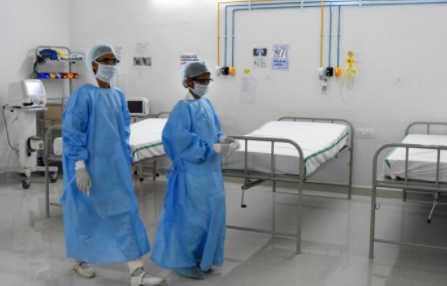
The Associated Chambers of Commerce and Industry of India (ASSOCHAM), one of the apex trade associations of India concluded the 13th edition of the ‘Illness to Wellness’ series themed ‘Impact of Covid-19 during Winter & Air Pollution’.
The online event saw an expert panel of oncologists and pulmonologists hold an informative dialogue on challenges faced by cancer, asthma patients, those suffering from chronic obstructive pulmonary disease (COPD) and other such diseases.
Supported by the hygiene brand SAVLON, the program which promotes healthy living with a focus on wellness and preventive health through healthy habits, diet, exercise, and holistic health saw the veteran speakers discuss at length the severity of Covid-19 during winters when air quality is significantly poor.
Renowned experts who shared their valuable comments included – Dr Vivek Nangia, Principal Director & Head, Institute of Respiratory, Critical Care and Sleep Medicine, Max Hospital, New Delhi; Dr Abhishek Shankar, Assistant Professor, Department of Radiation Oncology, Lady Hardinge Medical College, & Associated Hospitals, Founder Secretary, Indian Society of Clinical Oncology (ISCO); Dr Jeetendra Sharma, Chief, Critical Care (Unit II) & Chief, Medical Quality, Artemis Hospitals; Dr G.C. Khilnani, Chairman, PSRI Institute of Pulmonary, Critical Care & Sleep Medicine and Ex Head & Professor, Department of Pulmonary Medicine & Sleep Disorders, AIIMS, New Delhi; Dr Nitesh Gupta, Assistant Professor and Nodal Officer Covid-19, Department of Pulmonary Critical Care and Sleep Medicine, Safdarjung Hospital and Dr Rajesh Kesari, Founder and Director, Total Care Control who also moderated the ASSOCHAM webinar.
The panelists also said that Covid-19 patients with co-morbidities need to be hospitalized instead of home isolation. “There is a need for such patients to keep diabetes, hypertension, asthma, heart ailments and other pre-morbid diseases in control.”
It was also informed that even traditional practices like taking steam and gargling do not really help in Covid-19 as there is no scientific evidence that it would kill the virus.
The experts opined that during the winters there is higher production of pollutant matters thus, living for prolonged time in polluted environment leads to respiratory illnesses. “Patients suffering from asthma should not reduce or stop intake of steroids or use of inhalers during current times.”
The panelists also advised that even health conscious people with strong immunity should avoid early morning workout in open in the current scenario. “Covid-19 attack rate is so high that it is affecting even those with good immunity. Major transmission is droplet and air borne. Those in air-conditioned environment are at a higher risk.”
It was said that India can bring down Covid-19 mortality rate to one per cent by just being careful and following guidelines in letter and spirit.
Responding to certain queries the doctors said that masks do not provide 100 per cent protection from all toxic gases, particulate matter present in the air. “It is always better to stay indoors stay protected, exercise indoors because even N95 masks that are anyway better than cloth masks do not filter out gases and finer particles.”
Highlighting that there is no scientific evidence that air purifiers help improve health, doctors suggested that it should be used only in rooms with closed doors, windows and should commensurate with volume of the room. Besides, filters need to be changed frequently.While addressing ASSOCHAM webinar, Dr Abhishek Shankar, Assistant Professor, Department of Radiation Oncology, Lady Hardinge Medical College & Associated Hospitals, Founder Secretary, Indian Society of Clinical Oncology (ISCO), said, “Air pollution is an insolvable puzzle, but it is largely preventable. It is horrifying that we have to fight against our own people to save our environment. I personally think that environment should be put in the category of our ‘national security’. There is nothing good or bad in this pandemic. We all are trying hard to prevent bad from become worse as medical communities have hopes and those with hopes have everything”.
";

